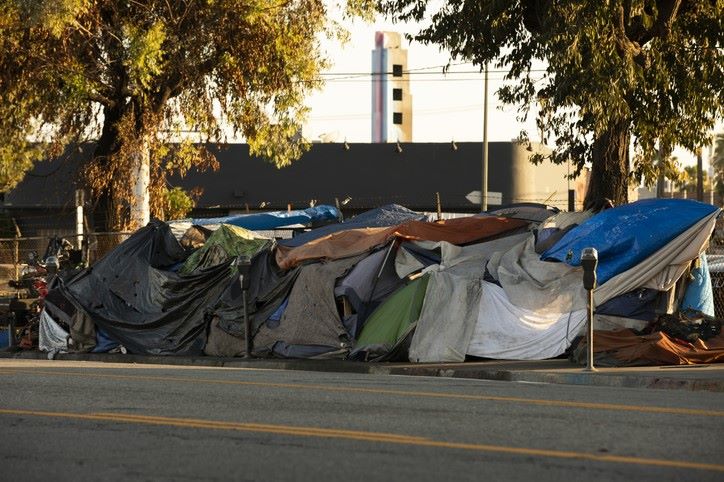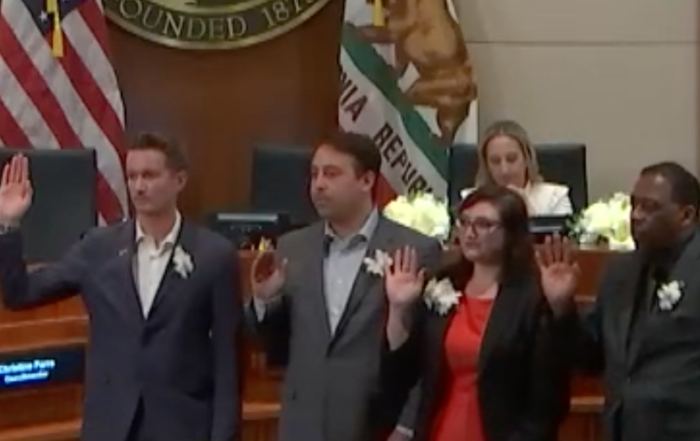On Tuesday, The Los Angeles County Board of Supervisors voted to support a motion put forth by Supervisor Kathryn Barger and Janice Hahn that will add Los Angeles County to a growing list of cities that have made two appeals to the Supreme Court regarding Johnson v. City of Grants Pass, a Ninth Circuit Court ruling that restricts local government’s ability to enforce encampment clearances as part of their anti-camping ordinances.
If passed, the case could overturn Martin v. City of Boise, a five-year-old case from a federal appeals court that limited how much cities on the West Coast could criminalize those who sleep on the streets when there aren’t enough shelter spaces available.
In 2019, numerous cities and counties filed an amicus brief challenging the Martin v. Boise ruling. However, the Supreme Court declined to hear an appeal of that case.
Initial violations of the ordinances resulted in a civil citation and monetary fine. Two or more violations of the anti-camping ordinances resulted in a park exclusion order, which could result in a ban from a park, and if violated, would serve as a basis for a criminal trespass citation.
The Ninth Circuit’s previous decision in Martin v. City of Boise served as a backdrop for the Johnson v. Grants Pass ruling, which held that “The Eighth Amendment prohibits the imposition of criminal penalties for sitting, sleeping, or lying outside on public property for homeless individuals who cannot obtain shelter.”
The Ninth Circuit also ruled that the city could not enforce anti-camping ordinances to the extent they prohibit “The most rudimentary precautions a homeless person might take against the elements,” such as bedding materials in public spaces.
According to the 2023 Los Angeles homeless count, there were 75,518 people experiencing homelessness in L.A. County, with 70 percent of those people experiencing unsheltered homelessness.
On September 22, 2023, the State of California, under the office of Governor Gavin Newsom, submitted an amicus brief in support of the City of Grants Pass, which wants to maintain the right to enforce such ordinances. Around two dozen cities and counties have filed amicus briefs in support of the petition. The U.S. Supreme Court granted the City of Grants Pass’s petition on January 12, 2024.
Supervisors Hilda Solis and Lindsey Horvath both voted no on Tuesday’s motion.
Horvath said she was concerned the Grants Pass case “Would further enable cities to push people from community to community without a commitment to housing or services.”
“Relying on this case is not a solution to homelessness. The only meaningful way to end the homelessness crisis we are seeing nationwide is to invest in safe, affordable housing options that include supportive services for our most vulnerable community members,” said Horvath.
The motion passed when Supervisor Holly Mitchell agreed to vote in favor but only after she added an amendment that stated the county does not support the criminalization of homelessness.
The amendment removed the support for Grants Pass and instead asks the Supreme Court to clarify how the Martin ruling can be applied when it comes to personal belongings on public property areas. The original motion did not ask for the brief to uphold the prohibitions on both criminal penalties and civil penalties that can escalate to criminal penalties.
In a statement after the board voted in support of the appeal, Supervisor Kathryn Barger said the motion encourages the Supreme Court to clarify our state and local government’s ability to protect and support the rights of our housed and unhoused constituents alike.
“If local governments are restricted from regulating the presence of encampments on public property, we are left powerless when trying to effectively address our worsening homelessness crisis,” said Barger. “This motion advocates for a balanced solution that urges cities to help people access services, shelter, and support while also protecting the broader community from the public health and safety issues that stem from encampments.”
Multiple homeless advocates such as the United Way of Greater Los Angeles, and the Los Angeles Community Action Network urged the board of supervisors not to get involved in the Grants Pass litigation. They said the anti-camping laws have criminalized people who are involuntarily homeless by citing people for camping outdoors when there are no alternative places for them to stay.
More than a dozen people also addressed the board in public comment opposing the vote.
“Criminalizing the people that we do not have enough resources to support is not only inhumane, it’s illegal according to the Eighth Amendment, and the international human rights standards that emphasize the right to housing, dignity, and nondiscrimination,” said resident Lena Mallett. “Upholding these standards requires a shift towards policies that prioritize supportive and compassionate approaches to homelessness.”
She further stated that criminalizing homelessness diverts valuable resources towards law enforcement and legal processes instead of addressing the root causes which could be better utilized in creating affordable housing, mental health services, and addiction treatment programs.
“This law will make it so much harder for case workers, housing workers, harm reduction org’s to stay in touch with the people they work with. I’ve already experienced it with the street sweeps on 5th and Main,” said resident Meghan Hynes. “All of the people I had been working with for over a year had gone overnight. All of our progress on their health, housing everything evaporated overnight. This will only make things so much worse.”
Photo by MattGush on iStockphoto.com
Stay informed. Sign up for The Westside Voice Newsletter
By clicking submit, you agree to share your email address with Westside Voice. We do not sell or share your information with anyone.








